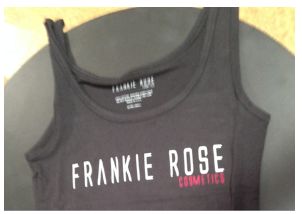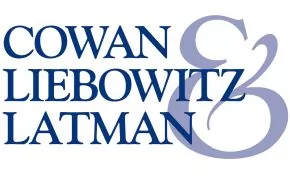When an existing trademark or service mark registration covers a mark identical or similar to your proposed mark, but the goods or services identified in the registration seem very different from yours, the registration nevertheless may block your application.
Here is an example of such a situation, followed by steps you might take to deal with it.

AVR Realty Company, LLC filed an intent to use application to register FRANKIE ROSE as a mark for goods and services including mugs, pastries, coffee beans, and online coffee shop services "featuring in-store order pickup". The Examining Attorney refused registration based on a likelihood of confusion with the identical mark FRANKIE ROSE registered for tote bags and shirts, as well as cosmetics. Are these respective goods closely related to each other?
The Applicant appealed this refusal to the Trademark Trial and Appeal Board ("TTAB").
The Applicant conceded that the Examining Attorney's evidence established tote bags and shirts are sometimes sold within coffee shops like Starbucks, Dunkin', Peet's Coffee and others. However, Applicant argued that in the marketplace, its goods (and services) related to food and beverage products, whereas Registrant's goods actually are ancillary to its cosmetic products. Applicant asserted neither party sells the other's core products (e.g., coffee and coffee-related goods vs. cosmetics).
The TTAB was unpersuaded by this distinction. In assessing the similarity of goods and trade channels, the TTAB emphasized it only considers the identifications as stated in the application and registration, not any real-world differences. Because there were no restrictions or limitations in the respective goods and services identifications by either party, the TTAB presumed each party's goods (and Applicant's services) may be marketed in all normal trade channels to all classes of customers. Thus, the respective goods and services might be encountered by the same purchasers in at least two common trade channels—on websites and in coffee shops.
In the evaluation of consumer sophistication, the TTAB again focused on the lack of limitations as to the types, price points, or intended consumers of Applicant's or Registrant's goods. It rejected Applicant's arguments that customers for coffee and cosmetics are sophisticated purchasers exercising special care. Such inexpensive products may be purchased on impulse and without care, thus the TTAB presumed the relevant purchasers to include ordinary consumers.
Accordingly, the TTAB affirmed the rejection of this application.
In re AVR Realty Company, LLC, Application No. 90699970 (T.T.A.B. Sept. 25, 2023).
Author's Note:
It may be surprising that a prior registration of a mark for tote bags and shirts could block registration of the identical mark for mugs and coffee shop services, which seem quite disparate. This type of broad likelihood of confusion analysis presents a particular difficulty for anyone trying to clear a proposed mark.
In the AVR decision, the TTAB acknowledged steps available to Applicant, including:
1. A proceeding to seek a partial cancellation or restriction of the Registrant's identified goods; and
2. A consent agreement from the Registrant.
Other possible approaches might include:
3. A request to the Registrant voluntarily to limit the goods identified in its registration, as well as include a differentiated limitation in the application (it may not be sufficient to add a limitation only to the applied-for goods, if there is no limitation in the registration); or
4. Addition of a distinguishing word or design element to Applicant's proposed mark.
The content of this article is intended to provide a general guide to the subject matter. Specialist advice should be sought about your specific circumstances.

